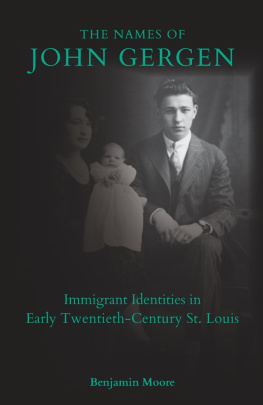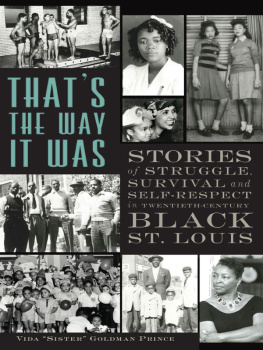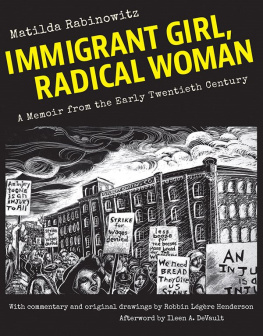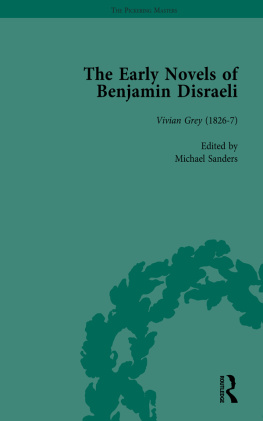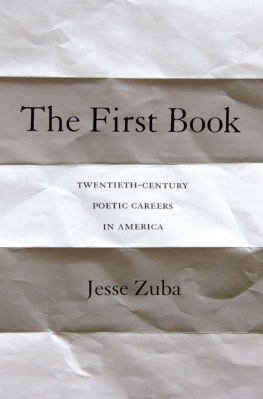Benjamin Moore - The names of John Gergen : immigrant identities in early twentieth-century St. Louis
Here you can read online Benjamin Moore - The names of John Gergen : immigrant identities in early twentieth-century St. Louis full text of the book (entire story) in english for free. Download pdf and epub, get meaning, cover and reviews about this ebook. year: 2021, publisher: University of Missouri Press, genre: Home and family. Description of the work, (preface) as well as reviews are available. Best literature library LitArk.com created for fans of good reading and offers a wide selection of genres:
Romance novel
Science fiction
Adventure
Detective
Science
History
Home and family
Prose
Art
Politics
Computer
Non-fiction
Religion
Business
Children
Humor
Choose a favorite category and find really read worthwhile books. Enjoy immersion in the world of imagination, feel the emotions of the characters or learn something new for yourself, make an fascinating discovery.
- Book:The names of John Gergen : immigrant identities in early twentieth-century St. Louis
- Author:
- Publisher:University of Missouri Press
- Genre:
- Year:2021
- Rating:3 / 5
- Favourites:Add to favourites
- Your mark:
- 60
- 1
- 2
- 3
- 4
- 5
The names of John Gergen : immigrant identities in early twentieth-century St. Louis: summary, description and annotation
We offer to read an annotation, description, summary or preface (depends on what the author of the book "The names of John Gergen : immigrant identities in early twentieth-century St. Louis" wrote himself). If you haven't found the necessary information about the book — write in the comments, we will try to find it.
Benjamin Moore: author's other books
Who wrote The names of John Gergen : immigrant identities in early twentieth-century St. Louis? Find out the surname, the name of the author of the book and a list of all author's works by series.
The names of John Gergen : immigrant identities in early twentieth-century St. Louis — read online for free the complete book (whole text) full work
Below is the text of the book, divided by pages. System saving the place of the last page read, allows you to conveniently read the book "The names of John Gergen : immigrant identities in early twentieth-century St. Louis" online for free, without having to search again every time where you left off. Put a bookmark, and you can go to the page where you finished reading at any time.
Font size:
Interval:
Bookmark:
University of Missouri Press, Columbia, Missouri 65211
Printed and bound in the United States of America
All rights reserved. First printing, 2021.
Title: The names of John Gergen : immigrant identities in early twentieth-century St. Louis / Benjamin Moore.
Description: Columbia : University of Missouri Press, [2021] | Includes bibliographical references and index.
Identifiers: LCCN 2020025720 (print) | LCCN 2020025721 (ebook) | ISBN 9780826222275 (hardcover) | ISBN 9780826274533 (ebook)
Subjects: LCSH: Gergen, John, 1908-1935. | Swabian Americans--Missouri--Saint Louis--Biography. | Immigrants--Missouri--Saint Louis--History--20th century. | Saint Louis (Mo.)--Emigration and immigration--History--20th century. | Banat--Emigration and immigration--History--20th century. | Soulard (Saint Louis, Mo.)--History. | Soulard (Saint Louis, Mo.)--Biography.
Classification: LCC F475.S78 M66 2021 (print) | LCC F475.S78 (ebook) | DDC 304.809778/66--dc23
LC record available at https://lccn.loc.gov/2020025720
LC ebook record available at https://lccn.loc.gov/2020025721
 This paper meets the requirements of the American National Standard for Permanence of Paper for Printed Library Materials, Z39.48, 1984.
This paper meets the requirements of the American National Standard for Permanence of Paper for Printed Library Materials, Z39.48, 1984.Font size:
Interval:
Bookmark:
Similar books «The names of John Gergen : immigrant identities in early twentieth-century St. Louis»
Look at similar books to The names of John Gergen : immigrant identities in early twentieth-century St. Louis. We have selected literature similar in name and meaning in the hope of providing readers with more options to find new, interesting, not yet read works.
Discussion, reviews of the book The names of John Gergen : immigrant identities in early twentieth-century St. Louis and just readers' own opinions. Leave your comments, write what you think about the work, its meaning or the main characters. Specify what exactly you liked and what you didn't like, and why you think so.

